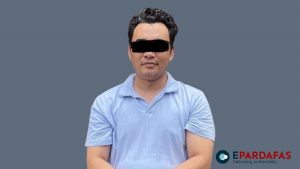The Banke District Court is set to inaugurate a dedicated family bench on July 31, aiming to expedite justice in cases involving children and women. This new facility, to be established within the District Court, will prioritize swift resolution of matters such as women’s property claims, domestic violence, and child-related issues, stated Judge Bhisma Raj Prasai.
The family bench initiative is already operational in the district courts of Kathmandu, Morang, Kaski, Dhanusha, and Rupandehi. Banke’s move to establish a similar bench is part of an effort to address and reduce the backlog of cases. Judge Prasai noted that 74 cases filed in the past two years remain unresolved as of the end of the last fiscal year, 2023/24.
The Banke District Court has implemented a classification system to streamline the justice delivery process, categorizing cases into three types: simple, general, and special. According to Judge Prasai, the court carried over 1,255 simple cases, 1,753 general cases, and 424 special cases from the last fiscal year into the current fiscal year, 2024/25.
In the previous fiscal year, the court successfully settled a total of 4,215 cases, achieving 82.95 percent of its target. As of mid-July this year, there are currently 3,432 pending cases.
To further enhance efficiency, the District Court has implemented an automated cause-list management system at the start of the current fiscal year. This new system is expected to improve case management and streamline court operations.
During a recent press meet, Judge Prasai unveiled the annual report of the court, highlighting that narcotic drug-related cases topped the list, followed by cases involving rape, murder, road accidents, financial fraud, divorce, and property partitioning. However, the court reported limited success in reconciling cases, with only 179 out of 5,984 cases sent for reconciliation being resolved. This shortfall was attributed to the unwillingness of disputants to reach a settlement.
The establishment of the family bench in Banke is seen as a significant step towards addressing the specific needs of women and children in the justice system, ensuring their cases are handled with the urgency and sensitivity they require.














Comments